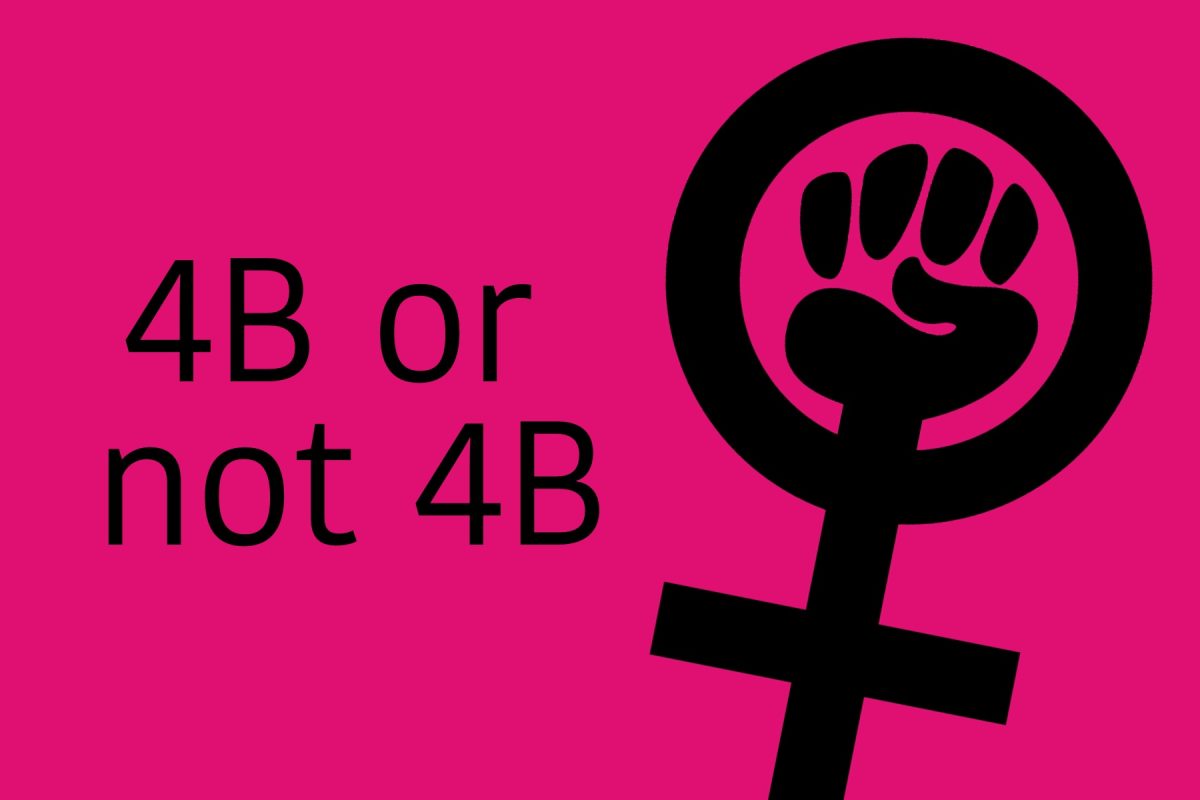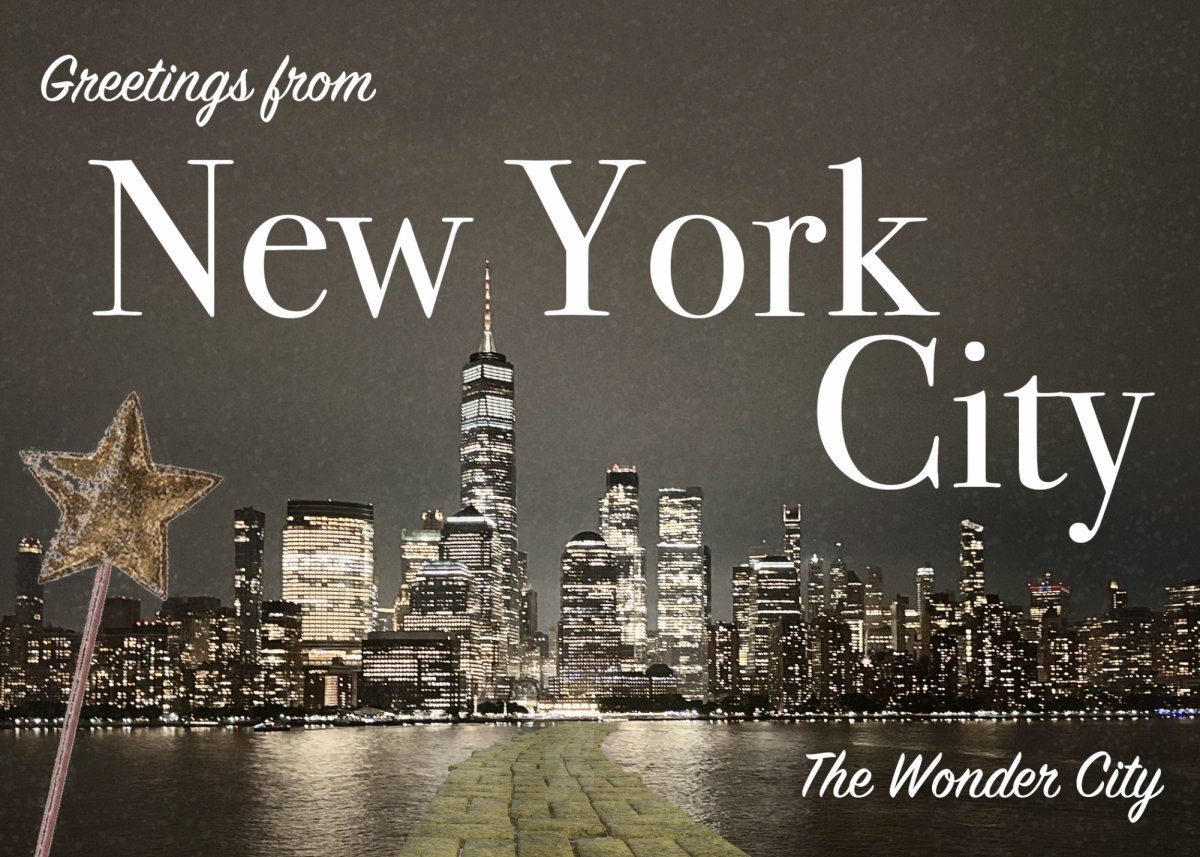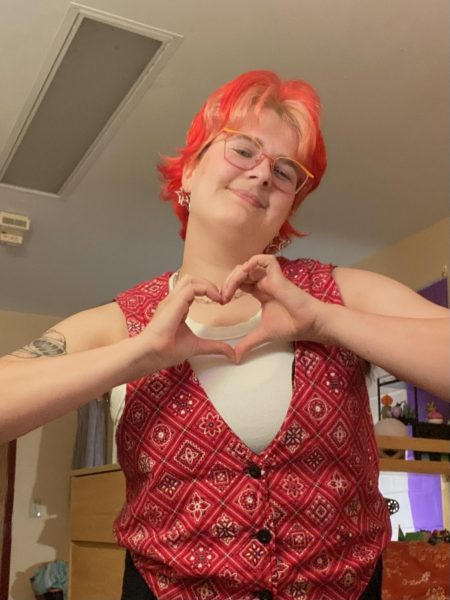America has a long, proud history of borrowing from other cultures. Some in the form of old colonialism, some as part of the so-called “melting pot” of American culture. Land, ideas, words, and traditions all fall victim to the American poaching at one point or another. And it is so quintessentially American for us to try to fix the political and social divide in our country using a strategy developed for another problem in another country.
Reproductive health and so-called “women’s issues” were major dividing factors in the 2024 presidential election. Pink News explains that abortion and contraception aren’t the only way this is true. President-Elect Donald Trump has a history of misogynistic attitudes, actions, and statements. As the results of the election came in, women across the country felt betrayed. Turning to a new form of protest, they found the 4B movement.
The B of 4B doesn’t refer to the Latin letter B at all, but the Korean word bi, meaning “no.” 4B means no marriage, no childbirth, no dating, and no sex. Essentially, 4B is a boycott of relationships with men. The 4B movement originated in the 2010’s in South Korea, reflecting “a broader dissatisfaction among young South Korean women who face instability of housing, digital sexual violence, economic disparities and cultural pressures,” according to researcher Ming Gao.
In America, 4B went viral soon after the election, popping up in discussions across various social media platforms. It’s been pitched as a way to gain body autonomy, make voices heard, and to “bite back” at the people who did not go to the polls with women’s rights in mind. On surface level, this is a powerful movement capable of making change. However, the situation in America is not comparable to that of South Korea, and this movement has the potential to divide communities in a time when support and understanding of intersectionality are most crucial.
Studying the South Korean 4B movement, this feminist mindset runs deeper than simply boycotting men. It addresses gender wage inequality, independence and self-help, and economic insecurity. South Korean women were struggling to survive on their own in a patriarchal culture. Consumerism marketed to women led to excessive spending, self-worth was tied to male approval, and in the eyes of the government, women were “birth-machines.” While the movement sent a message to men across the country, the primary purpose was to improve the lives of individual women, lighting a pathway out of patriarchal society and internalized misogyny.
Implementing 4B as a form of rebellion or revenge for American women would be doing the very thing 4B feminism aims to avoid: it centers men in the conversation. Author Marcie Bianco calls this concept the “man in the mirror.” In her words, the gender binary has forced women to “perceive our own personhood not as independent from men but wholly realized through them.” By defining a core belief of avoiding relations with men, the concept of the patriarchy is still looming over our ideas and identities, while we should instead be leaving it in the past where it belongs.
The bigotry and prejudice in America that 4B aims to fight is not limited to women and those affected by mandates on reproductive health. People of color, educators, disabled communities, and LGBTQ+ individuals are all at risk in our current political climate. Critics of 4B point out that the movement would be ignoring the intersectionality of immigrant men who are facing threats and hatred, the Black men who stand alongside women of color in the quest for equality, the queer individuals who have paved the way for decentering men from their worldviews, and the trans people who are caught in strange grey areas of reproductive care, feminism, and gender identity.
There are men in the world who are personally affected by abortion rights, women who belong to feminist communities yet can’t have biological children, and people who exist in every crevice of the world that end up overlooked by the communities who should be standing alongside them. Young women should not feel shame for desiring romance with men. We should be supporting their personal growth, and ensuring we live in a society where we can all grow as individuals, not in relation to each other. 4B isn’t the answer. The answer is building community, one person at a time. Stick with those you love, those who care about the way the world treats you.










